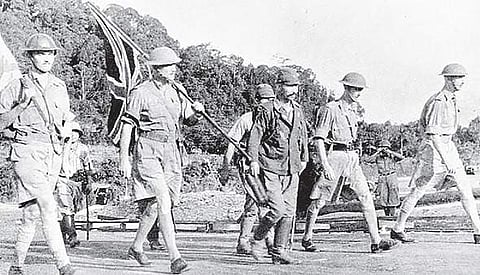

The British troops in Singapore surrendered unconditionally to the Japanese forces on February 15, 1942, seven days after the Nippon troops first stormed the island
‘Worst disaster in British history’
The capitulation came only two weeks after the Japanese onslaught on the Malay Peninsula forced the British troops to withdraw to the island, the BBC reported. UK Prime Minister Winston Churchill described the fall of Singapore as “the worst disaster and largest capitulation in British history”
32,000
Indian soldiers, 16,000 British troops and 14,000 Australian soldiers were captured by the Japanese. The high number of prisoners was not surprising as the troops had been ordered to defend Singapore until the last moment
Nazi delusions
Nazi dictator Adolf Hitler believed "the seizure of Singapore" would mean a decisive success for the Axis powers. The capture of Singapore would “solve all the other Asiatic questions, and would enable Japan to avoid war with US if she so wished”, German Grand Admiral Erich Raeder said in March 1941
A treaty Japan honoured to the last
The Nazis were then planning to attack the USSR. So, when Japan signed the Soviet–Japanese Neutrality Pact in April 1941, Hitler was pleased because “Japan was now restrained from taking action against Vladivostok and should be induced to attack Singapore instead”
Hitler was confident Germany could destroy Russia during the summer. He did not want Japan to share in this mighty feat. But before the summer of 1941 was out, the Nazis would be begging the Japanese to attack not Singapore or Manila but Vladivostok. But it was one treaty which Japan honoured to the very last